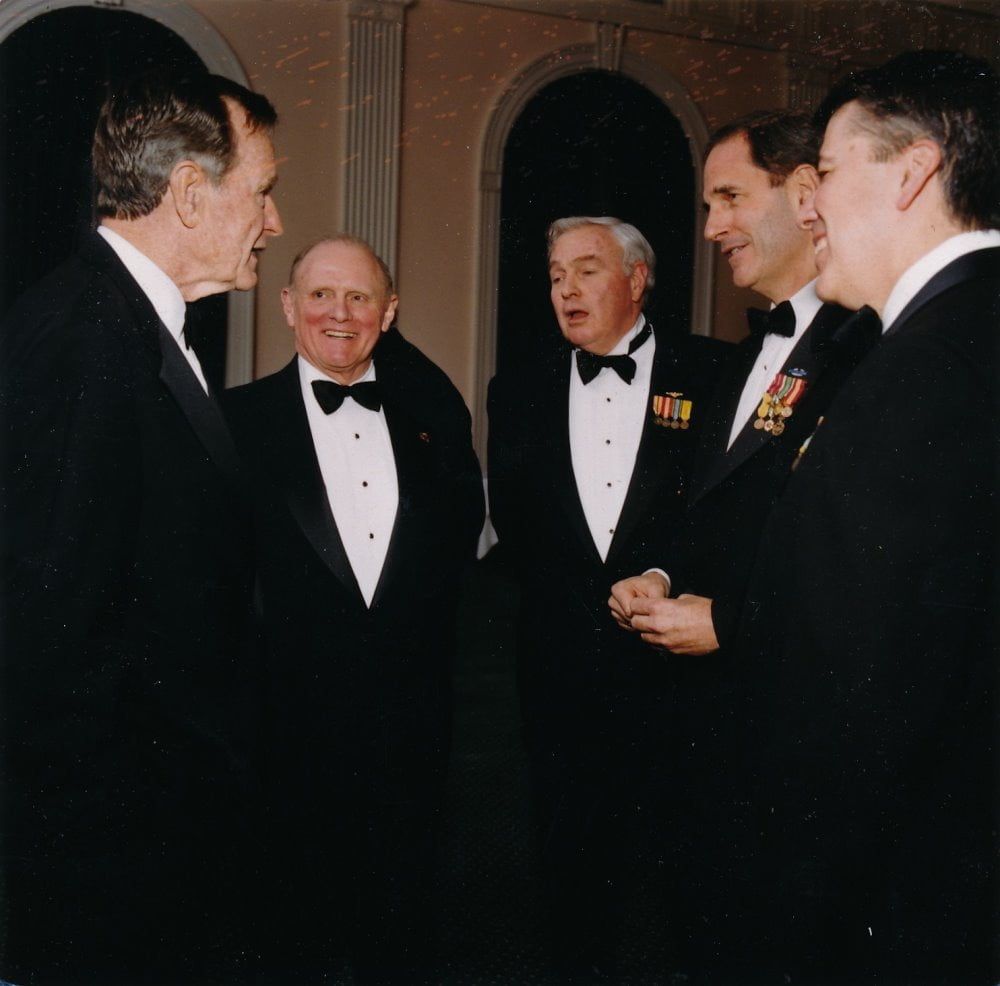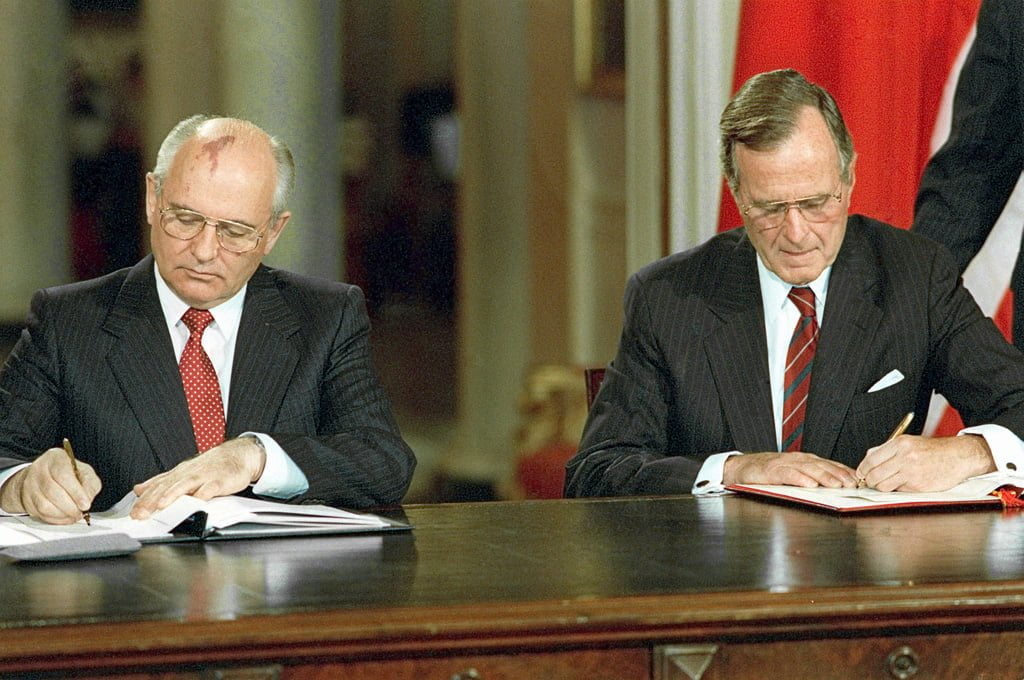By Robbin Laird
It seems a world ago, that George H.W. Bush was President.
He was the Vice President for a very controversial President, namely President Reagan and brought with him extensive foreign policy expertise.
And this expertise was put to the test at a crucial turning point in history.
In many ways, he brought the right leadership, the right expertise at the right time for the West.
Remembering President George H.W. Bush from SldInfo.com on Vimeo.
And with the kind of leadership which Reagan and Bush brought to Washington, a person like myself kind find ways to make a contribution.
For example, I set up a working group on German unification in 1985 at the Institute for Defense Analysis and many of the participants became key enablers of the effort when thinking could become reality.
There was point to providing help when there was a process that was not excessively politicized which has been largely the experience of the years since President George H.W. Bush was President.
I also worked with others on preparing for the end of the Soviet Union.
And what Bush brought to the effort was something that got lost in the years that followed, was a sense of humility to the end of the Cold War.
He was not shouting about how we “won” the Cold War, but understood that any historic change of such proportions would bring in its wake other challenges, perhaps even more difficult.
And when the Iraqi leader decided that he would have a free run at Kuwait, the President led the effort to put together an unprecedented historical coalition to free Kuwait from the Iraqis. He also understood the limits of coalition and did not invade Iraq for he wisely did not want to be responsible for that country’s fate.
If only his son had been this wise.
I did a major study for the Department of Defense after the collapse of the Soviet Union with regard to what the post-Cold War security order might look like. The core point was that challenges would actually accelerate and a central element of successful policy making would be to eschew the unipolar superpower model in favor of a great power working with allies and partner model.
At the heart of the study, were a set of recommendations of how reworking how the allied and partner dimension would change and how we might deal with that.
There was also a recommendation against rapid expansion of the EU and NATO for many reasons.
There was also a section on the return of Russia and what that might mean as well as ways not to overly damage the Russian psyche for that would lead to takeovers of Belorussia and Ukraine.
With a President like President George H.W. Bush at the head of the table, putting one’s lifeblood into such studies was worth the effort.
I would also add that much of the main stream media was not all that nice to him while he was President and became strong advocates for Clinton and has economic policies, and tarred him with the brush of a “foreign policy President.”
As my brother has put it, the main stream media like Republican leaders, as long as they are dead.
Humility, intelligence, strength and dignity were what the President brought to the United States.
Since that time we have had W, the Clintons and Obama, have clearly not lived up to his standards. It is more a decline than a straight line.
And now we have a whole new level of dynamics that make those years seem like some kind of pre-history to policy making.
The featured photo shows Soviet President Mikhail Gorbachev, left, and U.S. President George Bush signing bilateral documents during Gorbachev’s official visit to the United States in June 1990.



